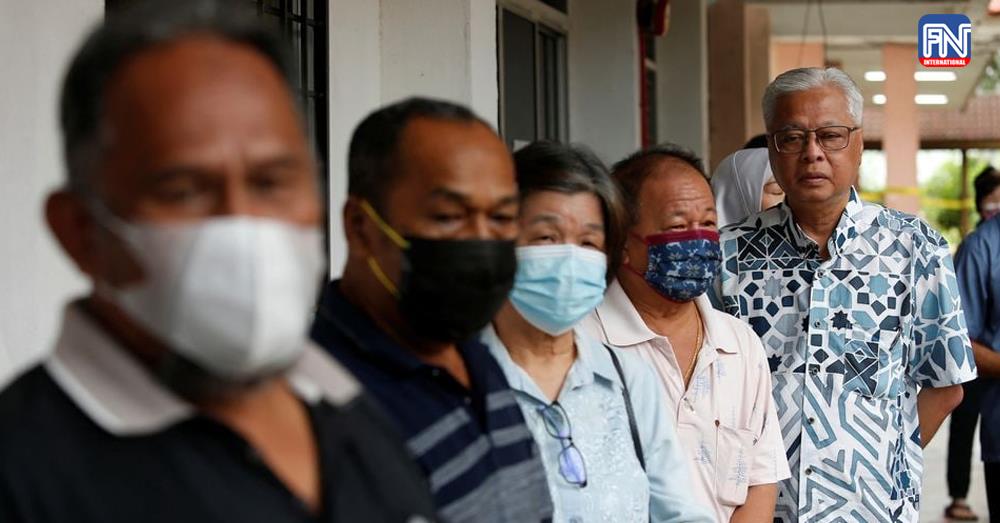KUALA LUMPUR, Nov 19 (AFP) - Malaysians were voting in a closely run general election on Saturday, a contest that may not end years of political instability as polls point to no clear winner in the Southeast Asian nation.
Longtime opposition leader Anwar Ibrahim's coalition is forecast to win the greatest number of parliamentary seats but fail to seize the majority needed to form a government as he faces off against blocs led by Prime Minister Ismail Sabri Yaakob and former premier Muhyiddin Yassin.
Without a clear winner, political uncertainty could persist as Malaysia faces slowing economic growth and rising inflation. It has had three prime ministers in as many years.
If Anwar should clinch the top job, it would cap a remarkable journey for a politician who in 25 years has gone from heir apparent to the premiership to a political prisoner convicted of sodomy to the country's leading opposition figure.
But rival coalitions could cobble together a coalition even if Anwar gets the most votes, and the race is fluid as opinion polls show a significant number of undecided voters.
"I don't think it is possible for any coalition to win on their own," said Sivamurugan Pandian, political analyst at Malaysia Science University. "Somehow they will have to work with others."
New parties are splitting the vote and there are a significant number of new voters, he said.
Anwar's bloc is multiethnic, while the other two prioritise the interests of the ethnic-Malay Muslim majority. Muhyiddin's bloc includes an Islamist party that has touted shariah law.
Malaysia's 21.1 million eligible voters, including 5 million new ones, will choose 222 lawmakers for the lower house of parliament.
The top issues are the economic outlook and rising inflation. Many Malaysians are frustrated with the political instability that they think has taken politicians' focus off economic development.
Opinion polls show Anwar in the lead, with independent pollster Merdeka Center forecasting on Friday that Anwar's reformist Pakatan Harapan coalition was on course to take 82 seats, Muhyiddin's Perikatan Nasional alliance, gaining momentum among Malays at 43 seats, Ismail's Barisan at 15 but 45 too close to call.
Anwar was the top choice for prime minister at 33%, followed by Muhyiddin at 26% and Ismail at 17%.
Barisan governed for 60 years, from independence until 2018, while Perikatan is a new bloc that has emerged as a strong third force.
